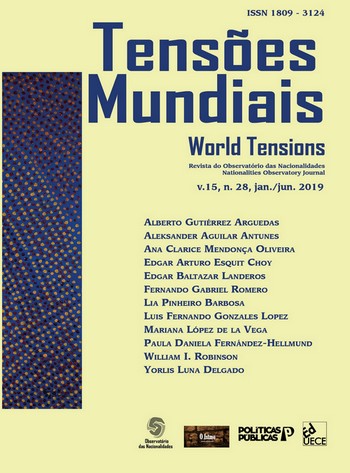Crisis política en Nicaragua:
un análisis para su compresión
DOI:
https://doi.org/10.33956/tensoesmundiais.v15i28.1181Keywords:
Nicaragua. Interoceanic canal. Social conflict. Political Crisis.Abstract
On April 18, 2018, the Nicaraguan government announced a social security reform aimed at increasing employer and labor contributions and establishing a 5% cut in pensions. As a result of this disposition, a wave of demonstrations began in several parts of the country, questioning such measure, which had a repressive response from the government. Although the reforms to the social security were repealed on April 22, this decision did not stop the popular discontent, and the manifestations and the social conflict were deepened as a consequence of the violence perpetrated by the State, initiating a political crisis that has put questioning the legitimacy and continuity of the Ortega - Murillo administration. Based on this, in this paper we propose to analyze the background that gave rise to this crisis, emphasizing the project of the interoceanic canal and the resurgence of social conflict, phenomena that are related to the dynamics of capital worldwide and the expansion of the neoextractivist model in Latin America and the Caribbean.
Downloads
Published
How to Cite
Issue
Section
License
Authors retain the copyright and grant the journal the right to first publication, with the work simultaneously licensed under the Creative Commons Attribution 4.0 International license that allows the sharing of the work with acknowledgment of authorship and initial publication in this journal.






